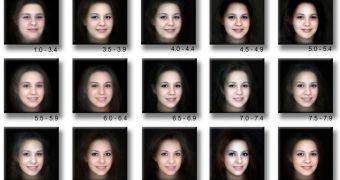Many researchers have said over the years that a person's intelligence quotient (IQ) can be considered a clear indicator of that individual's smartness in a number of other areas as well. But a new study seems to suggest that this is not always the case, especially when it comes to our ability to recognize faces. This is proven by the fact that, regardless of IQ and general intelligence, some people never forget a face, while others have a hard time remembering people they saw the other day. A group of scientists has recently proven that face-recognition abilities are also inherited, but that they are not directly correlated with other measures of intelligence, LiveScience reports.
“Our study provides the first evidence supporting the modularity hypothesis from a genetic perspective. That is, some cognitive abilities, like face recognition, are shaped by specialist genes rather than generalist genes,” Chinese scientist Jia Liu, who is a Beijing Normal University professor of cognitive neuroscience, and also the lead author of the new investigation, says. “Our finding may help explain why we see such disparities of cognitive abilities within the same person in certain heritable disorders,” study coauthor Nancy Kanwisher explains. She holds an appointment in the Massachusetts Institute of Technology (MIT) McGovern Institute for Brain Research.
The research basically compares the mind to a Swiss Army Knife, where multiple tools are combined to result in a very useful whole. However, each individual task is performed by a single instrument, which is precisely how IQ and face recognition are separated, the team says. The investigators published the full details of their work in the January 7 issue of the respected scientific journal Current Biology. The scientists worked on 102 pairs of identical twins, and on 71 pairs of fraternal twins in order to draw these conclusions. All the children were selected from schools in Beijing, and were aged between seven and 19.
All of the pairs were made to watch images of faces on a computer screen. Each test subject saw ten faces at first, and then a batch of 30 images, of which 20 were of new, never-before-seen people. They were then asked to identify which of these individuals they had seen before, in the first batch of photographs. According to the research, identical twins had more tightly matched scores than fraternal twins. According to Liu, the variance between the results, which reached about 39 percent of cases, is attributable to genetic difference in the fraternal twins.

 14 DAY TRIAL //
14 DAY TRIAL //